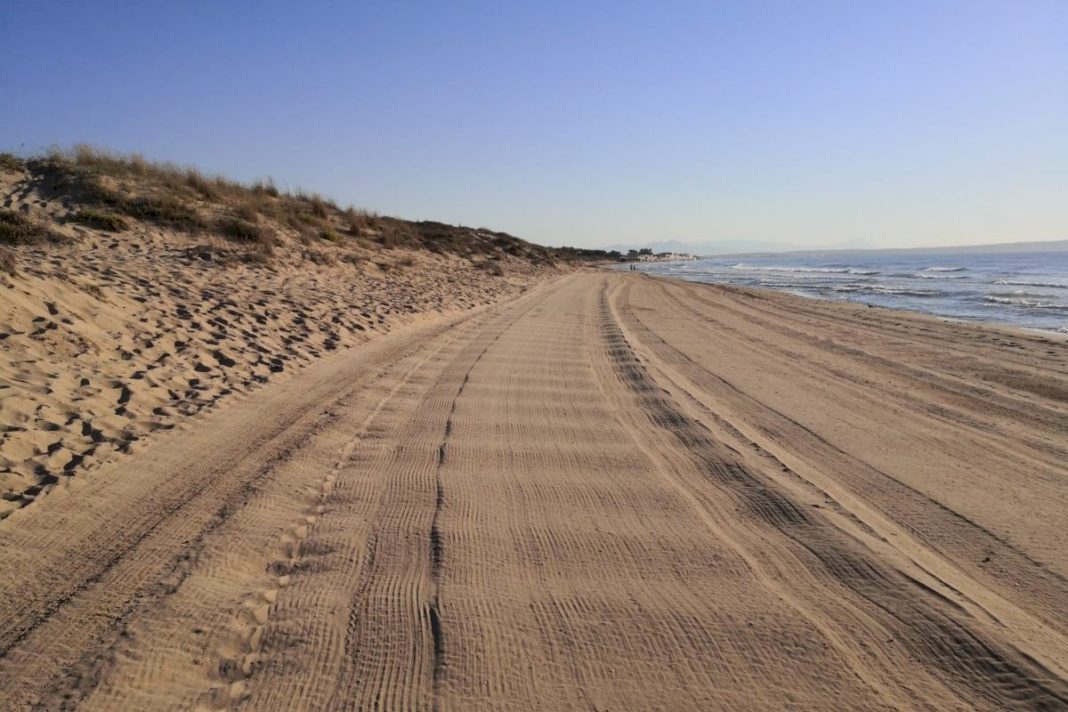A local group of ecologists, Margalló-Ecologistes en Acció, has asked the Councillor for Cleaning in Elche, Héctor Díez, and the Councillor for Beaches, Carles Molina, to replace the municipality’s current mechanical beach cleaning service with manual cleaning, thus ending the, in the opinion of the collective, serious environmental consequences that the service causes.
“The screening that is being carried out daily with tractors entails the alteration of the balance of the existing biodiversity on the beaches. Natural organic matter from the sea is indiscriminately removed, such as the remains of Posidonia and other marine phanerogams, reducing the development of microorganisms and interstitial fauna and leaving marine sediments unprotected, which can lead in the short and medium term to the loss of sand in the sea itself”, they say.
“This loss of sand is accelerating with the increase in the frequency of storms that hit our coastline and with the increase in their virulence, all as a result of climate change. It is a process that we are seeing first-hand in areas of our coastline such as El Pinet or La Marina. Areas that, being far from accesses and therefore having very little influx of bathers, have practically no waste, are screened daily with heavy machinery.
In addition, in the case of La Marina, due to the narrowness of the beach strip, it is screened near the dunes, removing the bottom of its slope, and in areas of wet sand, where mechanical cleaning should never be carried out”.
For Margalló, the alternative to the current means of management the manual cleaning of the beaches and the awareness of the users. “Manual cleaning is more selective and allows the natural remains of species such as Posidonia to be left on the beach itself, which, as is known, protect the beach itself from storms.”
With regard to achieving greater user awareness, Margalló recalls that, among the requirements to achieve the distinction as a blue flag, is providing adequate environmental information to users and the organisation of environmental education activities on the beaches, “something that we have no record of being done. A greater awareness of the people who come to enjoy our beaches would result in less waste abandoned on them and therefore in cleaner beaches.
And furthermore, adequate information on, among other things, the role played by Posidonia remaining on the sand, would avoid criticism such as those made a few days ago by neighbours and users of our beaches”, they affirm.
Finally, from Margalló they comment that, to all that has been said, a new factor is added to take into account. “The loggerhead turtle (Caretta caretta), also forced by climate change, is beginning to move to our shores to nest. “To guarantee their survival, it is going to be necessary to adequately conserve places for them to lay their eggs, which implies the conservation of the few natural areas that we still have left on our coastline,” they maintain.
“But a change in the management of our beaches, so that aesthetic criteria do not prevail when designing said management, the mechanical cleaning of these breaks with the tranquillity that the turtles need at night to be able to nest, when work continues until well into the morning with the tractors, lighting up the beach and with a loud noise, drives them away from the area.
If any, despite everything, manage to nest in the few hours that remain between the end of the cleaning machinery and dawn and the nest is not located, which happens very frequently, the compaction of the sand produced by the heavy machinery would spoil the laying”.





